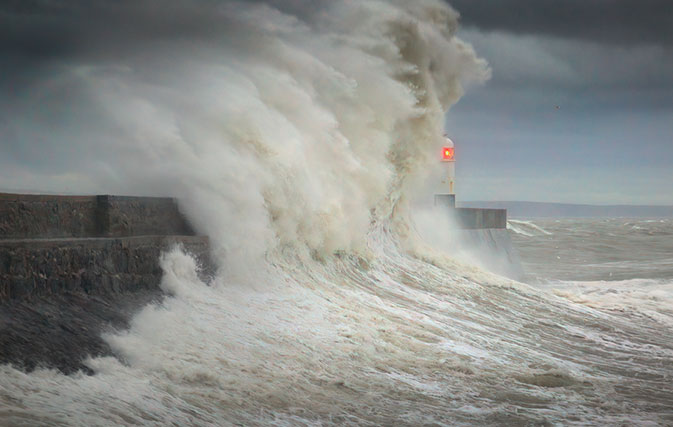BERLIN — A strong winter storm that has battered Europe with hurricane-force winds and heavy rains and killed at least five people moved eastward Monday, causing severe travel disruptions across the continent.
After striking Britain and Ireland on Sunday, the storm moved on, leaving a trail of damage including power cuts for tens of thousands of homes across Europe.
Britain, which bore the brunt of the storm on Sunday, was assessing the damage and working to get power restored to 20,000 homes. However, for parts of northern England and Scotland, the respite is set to be brief, with forecasts of blizzards and snow.
“While Storm Ciara is clearing away, that doesn’t mean we’re entering a quieter period of weather,” said Alex Burkill, a meteorologist at Britain’s Met Office. “It’s going to stay very unsettled.”
In the wake of the storm, many parts of the country were mopping up after a month and a half’s rain fell in just 24 hours in some places and rivers burst their banks. Around 100 flood warnings remained in place across the country.
Transport authorities, particularly those running the country’s rail network, were working hard to clear up the mess. Network Rail, which runs the country’s rail infrastructure, said thousands of its engineers had “battled horrendous conditions” to clear tracks after the storm blew trees, sheds, roofs and even trampolines onto the line on Sunday.
Ferries were operating across the English Channel after being closed down on Sunday though P&O Ferries said in a tweet that further disruptions were possible.
Airlines operating to and from U.K. airports were still being affected by the storm, with more than 100 flights cancelled.
“We’re getting in touch with those affected, and have brought in extra customer teams to help them with a range of options including a full refund or an alternative flight between now and Thursday,” British Airways said in a statement.
The storm has now largely passed through France, though meteorologists warned that the Mediterranean island of Corsica could see winds as high as 200 kph later Monday. Waves lashed the northern coast, and high winds blew a truck onto its side on the A2 highway that links Belgium with France. Up to 130,000 homes were without electricity Monday morning, stretching from Brittany, in western France, through Normandy and the northern regions.
In Germany, utility companies were also scrambling to restore power to some 50,000 homes in northern Bavaria early Monday, where a top wind of 161 kph was recorded.
Train travel across Europe’s biggest economy was also severely disrupted, leaving many commuters unable to get to work. Deutsche Bahn said Monday it was slowly resuming long-distance rail services in the north of the country but warned travellers to expect further disruptions. Airlines cancelled hundreds of flights from German airports.
The storm, which was dubbed Sabine in Germany, also led to school closures in several cities and regions, including Germany’s North Rhine-Westphalia state, where several people were injured by falling branches and toppling trees.
About 96,000 households were also without electricity across the Czech Republic and at least seven flights from Prague’s international airport were cancelled, including the flights to Zurich, Munich, Frankfurt, Duesseldorf, London and Amsterdam.
An Airbus A320 operated by Qatar Airways was diverted from Prague to Vienna after the pilots were not able to land early Monday. Dozens of train routes were blocked due to trees on the tracks, while other trains are delayed.
Source: The Associated Press
